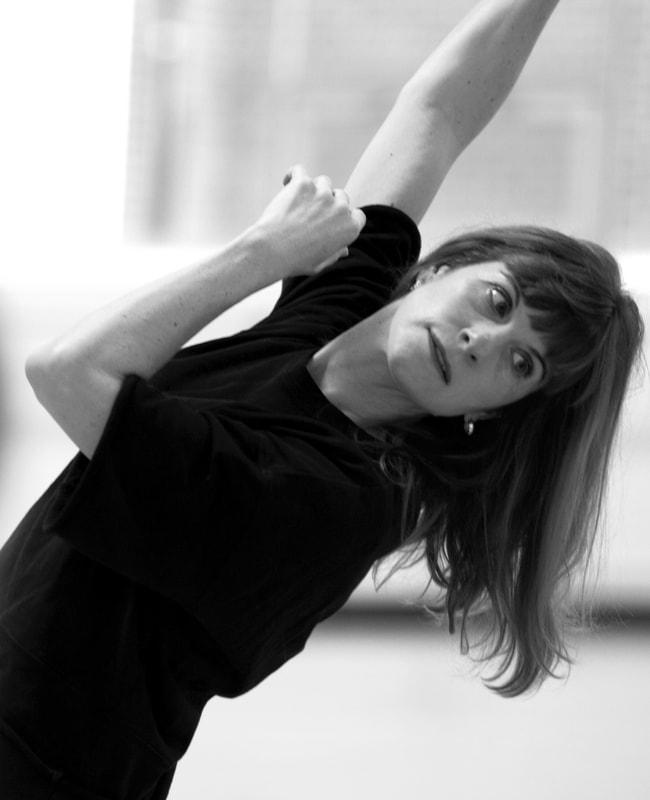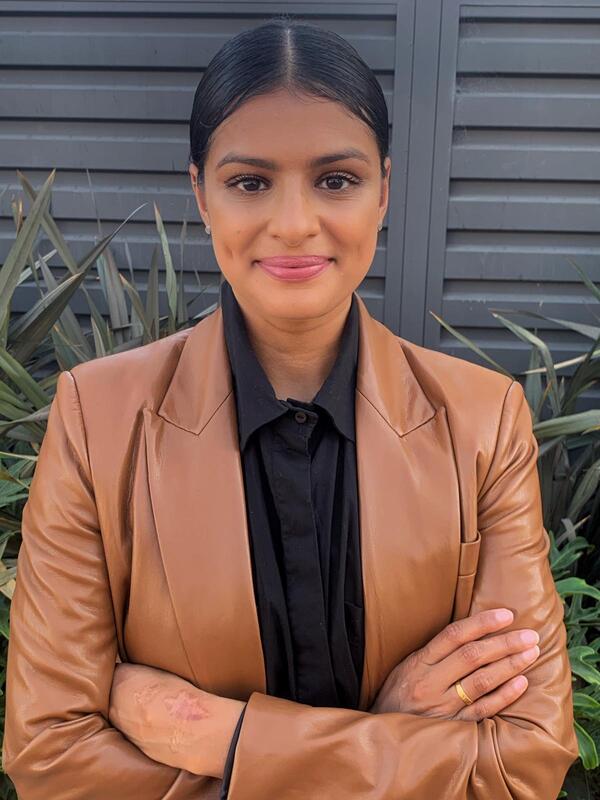Challenging the Brain and the Body: Mature Dancers’ Experiences in an Age Aware Contemporary Dance Class (Jennifer Nikolai, Pirkko Markula, Simrit Deol)
The purpose of this study was to investigate mature contemporary dancers’ experiences in a dance class designed specifically for their needs. In this paper, we share findings from this research that engaged a group of experienced contemporary dancers aged 45 to 68 who have performed together in Edmonton, Alberta, Canada since 2015. All dancers have a long history of training in a range of dance genres from a young age and of teaching dance and choreographing works into adulthood and later adulthood.
In 2019, based on the dancers’ request, regular dance classes were organized for the dancers to prepare for a live performance in early 2020. Over a five month period the classes led by a mature dancer, were conducted typically twice weekly. The seven dancers, including the teacher, were interviewed after the completion of the class and the performance to seek their reflections on these classes. The interviews included such themes as health and well-being, suitability of the time of day, length of class, frequency of classes, class composition, class pedagogy and personal considerations towards injury and fatigue prevention within the class. In addition, the dancers had a chance to reflect upon their previous training and performance preparation.
The analysis of the semi-structured interviews revealed the benefits of having ongoing and repeated opportunities to take classes with fellow dancers in a community of like-minded individuals. The dancers emphasized the importance of keeping classes frequent and structurally familiar. They also preferred being taught by a fellow mature dancer who had the expertise of creating class content and integrate pedagogy that ensured sustainable healthy practice that was sensitive to individual dancers’ well-being. Dancers further discusses the need for mature dancers to retain fitness and to support the memory of recalling complex sequences and challenging dance phrases. Finally, they were encouraged by dancing with peers in a supportive, familiar, but ultimately challenging studio-based dance class. The study conclusions indicated a need to support mature dancers in their dance teaching and performing careers. To retain inspired as well as physically well prepared mature dancers for long rehearsal processes leading to performance is
imperative.
In 2019, based on the dancers’ request, regular dance classes were organized for the dancers to prepare for a live performance in early 2020. Over a five month period the classes led by a mature dancer, were conducted typically twice weekly. The seven dancers, including the teacher, were interviewed after the completion of the class and the performance to seek their reflections on these classes. The interviews included such themes as health and well-being, suitability of the time of day, length of class, frequency of classes, class composition, class pedagogy and personal considerations towards injury and fatigue prevention within the class. In addition, the dancers had a chance to reflect upon their previous training and performance preparation.
The analysis of the semi-structured interviews revealed the benefits of having ongoing and repeated opportunities to take classes with fellow dancers in a community of like-minded individuals. The dancers emphasized the importance of keeping classes frequent and structurally familiar. They also preferred being taught by a fellow mature dancer who had the expertise of creating class content and integrate pedagogy that ensured sustainable healthy practice that was sensitive to individual dancers’ well-being. Dancers further discusses the need for mature dancers to retain fitness and to support the memory of recalling complex sequences and challenging dance phrases. Finally, they were encouraged by dancing with peers in a supportive, familiar, but ultimately challenging studio-based dance class. The study conclusions indicated a need to support mature dancers in their dance teaching and performing careers. To retain inspired as well as physically well prepared mature dancers for long rehearsal processes leading to performance is
imperative.
Jennifer NikolaiPirkko MarkulaSimrit Kaur DeolAllison Jeffrey |
Jennifer Nikolai (PhD) is a Senior Lecturer, contemporary dance practitioner and performance studies scholar. Her studio-based, emergent methodology informs live and digital interactivity in performance making and staging. Camera dramaturgy, improvisation and critical approaches to collaborative making are applied in the studio, in screendance and community settings. Her research spans mobile camera improvisation, motion capture and VR, as well as learning and teaching in a range of movement contexts including physical activity, health, well-being, risky play and ‘dancing as we mature’. She conducts research in Canada and New Zealand, her country of origin and her country of residency, respectfully. Jennifer lectures and supervises Postgraduate research The faculty of health and Environmental Sciences and Design and Creative Technologies at AUT, Auckland, Aotearoa New Zealand.
Pirkko Markula is a professor of socio-cultural studies of physical activity at the University of Alberta, Canada. Her research interests include social analyses of dance, exercise, and sport in which she has employed several theoretical lenses ranging from critical, cultural studies research to Foucault and Deleuze. She is also a contemporary dancer and choreographer. She is the author of Deleuze and the Physically Active Body (Routledge, 2019), co-author, with Michael Silk, of Qualitative Research for Physical Culture (Routledge, 2011), co-author with Richard Pringle, of Foucault, Sport and Exercise: Power, Knowledge and Transforming the Self (Routledge, 2006), editor of Feminist Sport Studies: Sharing Joy, Sharing Pain (SUNY Press, 2005) and Olympic women and the media: International perspectives (Palgrave, 2009), co-editor with Marianne Clark of The Evolving Feminine Ballet Body (University of Alberta Press, 2018), co-editor with William Bridel and Jim Denison of Endurance running: A socio-cultural examination (Routledge, 2016), co-editor with Eileen Kennedy of Women and Exercise: Body, Health and Consumerism (Routledge, 2011), co-editor, with Sarah Riley, Maree Burns, Hannah Frith and Sally Wiggins, of Critical Bodies: Representations, Identities and Practices of Weight and Body Management (Palgrave, 2007) and co-editor, with Jim Denison, of Moving Writing: Crafting Movement in Sport Research (Peter Lang, 2003).
Simrit Kaur Deol is a PhD student in the Faculty of Kinesiology, Sport, and Recreation at the University of Alberta. Her research interests are looking at the body, physical activity, and health from an intersectional lens, with a previous focus on immigrant girls. She has worked on the frontlines for various grassroots and non-profits such as Fit Kids Healthy Kids, GirlForward, Rec and Read Mentorship Program and the Boys and Girls Club. She is currently working on her doctoral thesis that critically engages settler colonialism, postfeminism, and intersectionality within contemporary sport, digital and physical cultures.
Allison Jeffrey (Ph.D. Sport Sociology, University of Waikato, New Zealand) is a post-
doctorate research fellow in the Body, Movement and Culture Research Group within the Faculty of Kinesiology, Sport and Recreation at the University of Alberta, Canada. Her research interests include new materialisms, posthumanisms, innovative methodologies, embodiment and physical activity. She is currently working with Professor Pirkko Markula on a research project investigating women’s experiences of dance and aging. Dr. Jeffrey is an experienced Yoga teacher, breathwork facilitator and meditation educator who regularly lectures (both for community and tertiary audiences) on the health and wellbeing benefits of these practices. Her PhD focused on the embodied experiences of women Yoga practitioners and her most recent publication in Somatechnics titled “Entangled Yoga Bodies” engages a new materialist lens to imagine bodies as complex becomings. She recently contributed to a research project with Professor Holly Thorpe and Dr Nida Ahmad on women’s experiences of economic and emotional recovery through pandemic and this has led to a number of publications including her most recent in Sociology of Sport Journal. |




